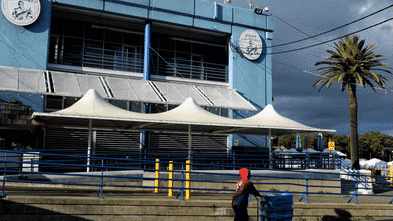Research has uncovered a concerning link between the consumption of very hot beverages and an increased risk of oesophageal cancer. A significant study involving nearly half a million adults in the United Kingdom has confirmed that drinking high volumes of hot tea and coffee can heighten this risk.
The International Agency for Research on Cancer (IARC) classified beverages served at temperatures exceeding 65°C as “probably carcinogenic to humans” in 2016. This classification places very hot drinks in the same risk category as other known hazards, such as indoor wood smoke and high consumption of red meat. The IARC’s findings indicate that it is the temperature of the drinks rather than the beverages themselves that poses a health risk.
Understanding the Risks
Oesophageal cancer has been linked to traditional drinks consumed at high temperatures, especially in regions such as South America, where maté is often enjoyed at approximately 70°C. Studies from the Middle East, Africa, and Asia have similarly suggested an association between very hot beverage consumption and an elevated incidence of this type of cancer.
The recent UK study found that individuals consuming eight or more cups of very hot tea or coffee each day were nearly six times more likely to develop oesophageal cancer compared to those who did not consume hot drinks. This alarming statistic highlights the potential dangers of habitual consumption of beverages at extreme temperatures.
Researchers believe that the damage caused to the oesophagus lining by very hot drinks may lead to cancer development over time. Animal studies have indicated that extremely hot water can promote cancer growth, with research demonstrating that mice exposed to 70°C water developed precancerous growths more rapidly than those given water at lower temperatures.
Consumption Patterns and Safe Practices
The risk associated with hot drinks may also depend on the volume consumed and the speed of consumption. Evidence suggests that larger sips of hot beverages can raise the internal temperature of the oesophagus significantly. For instance, drinking 20 millilitres of coffee at 65°C can increase the oesophagus temperature by up to 12°C.
To mitigate health risks while enjoying hot beverages, experts recommend allowing drinks to cool before consumption. Studies indicate that a hot drink’s temperature can decrease by 10–15°C within five minutes. The optimal drinking temperature for coffee, balancing safety and taste, has been suggested to be around 57.8°C.
For those who enjoy hot drinks, moderation is key. Taking smaller sips and allowing time for cooling can significantly reduce the risk of heat-related injuries to the oesophagus. As noted by Vincent Ho, Associate Professor and Clinical Academic Gastroenterologist at Western Sydney University, adopting these practices can help enhance enjoyment while minimizing health risks.
In conclusion, while hot beverages can be a comforting ritual, awareness of their potential health implications is crucial. With evidence mounting regarding the risks associated with very hot drinks, consumers may want to reconsider how they enjoy their tea and coffee.

































































